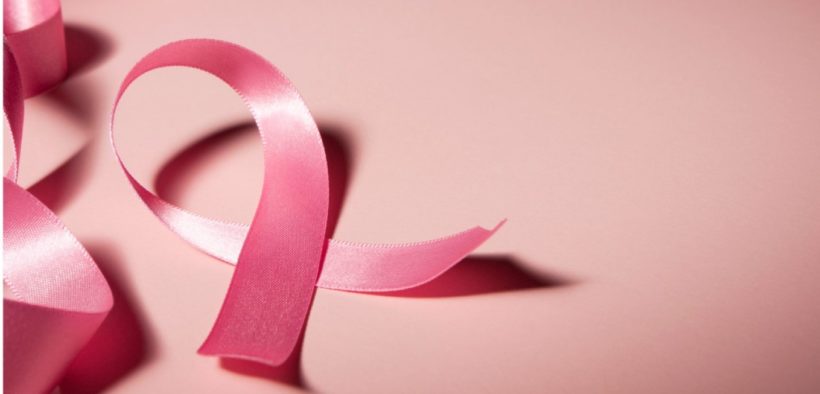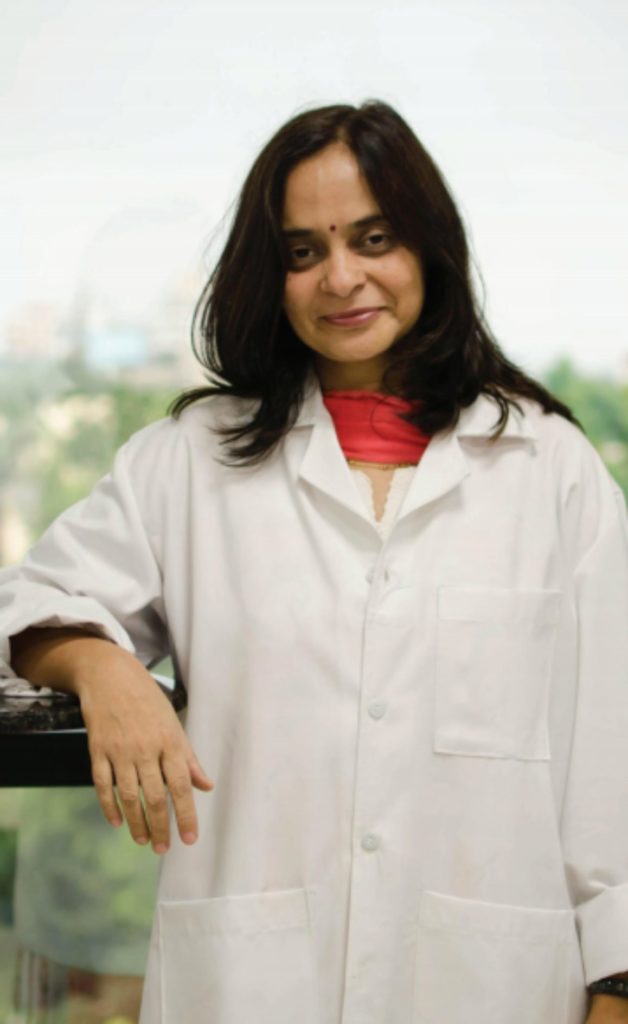Breast Health Evangelist

Dr Anupama Mane, breast surgeon and Head of Breast Services at Jehangir Hospital, Pune, talks about the challenges ahead in the sector.
By Anila Mathew
What motivated you to become a breast surgeon?
After I cleared my Masters’ degree in Surgery (MS), I was practicing as a general surgeon. I used to read up on developments in other countries and I realized that in our country, there is a serious lack of good breast health care. There were just no specialists available. There was so much happening abroad. It’s not very technology-dependent or very expensive either. So I thought there was an opportunity to provide a better quality of service and breast healthcare to women in India.

How many breast surgeons are there in India?
I cannot say authoritatively but the number is not more than five in a big city like Pune. There may be 50 to 70 breast surgeons in India approximately. In smaller towns and villages, there won’t be a breast surgeon at all.
How many breast surgeons are there in India?
I cannot say authoritatively but the number is not more than five in a big city like Pune. There may be 50 to 70 breast surgeons in India approximately. In smaller towns and villages, there won’t be a breast surgeon at all.
What are the biggest challenges you face today?
I would say a lack of awareness among women. When they have a breast problem or any other problem for that matter, women tend to ignore it until it becomes so big that it becomes troublesome. That is the time they come to the doctor. And by that time, it is too late for us to treat cancer. Even urban, literate, educated and financially sound women come late for treatment. Only if everybody can just know that if you have breast tissue, you must go to your doctor and get it checked, that would be much better.
WHEN THEY HAVE A BREAST PROBLEM, OR ANY OTHER PROBLEM FOR THAT MATTER, WOMEN TEND TO IGNORE IT TILL IT BECOMES SO BIG THAT IT BECOMES TROUBLESOME. THAT IS THE TIME THEY COME TO THE DOCTOR. AND BY THAT TIME, IT IS TOO LATE FOR US TO TREAT THE CANCER.
What would you rate as your biggest achievement to date?
(With a laugh) I have never really thought about it. I would say, treatment, early detection, diagnosis… we are doing a lot of work at many levels. For increasing awareness, we are holding camps, talking to women, getting them checked, conducting free camps. That is one part of our work. The second part of our work is the actual diagnosis and treatment, which we do in the hospitals, and the third part of our work is rehabilitation. Once a breast cancer patient is treated, we don’t just leave them. We rehabilitate them back into society, we look after their problems, and help them face the issues, whether social, mental, emotional or sexual. All these issues crop up after the treatment, so all these are taken care of in the rehabilitation process.

How does the process of rehabilitation work?
For instance, after breast cancer surgery, patients develop what is called the ‘elephant arm’, i.e. arm swelling, a condition that occurs on the side they are operated on. In rehabilitation, we teach them how to massage, how to hold the arm up, how much pressure to apply, what kind of garments can be worn, the kind of care to be taken so that swelling does not happen. It is a permanent side effect, and they have to prevent that from happening. That is one part of the rehabilitation. Secondly, we have counseling sessions, since most patients suffer from anxiety, depression, etc. We have psychologists and counselors to help get them back on track and then if they have sexual issues, we talk to the husband also to rectify the issue.
Does India have a significant number of cases with hereditary breast cancer?
India does not have a significant number of hereditary cancers; the figure is approximately the same figure as in the rest of the world. We don’t have data like well-maintained registries to confirm that either. I would say 5-10% of all cancers are hereditary. For breast cancer specifically, the risk factors would be having a first degree relation who had breast cancer or ovarian cancer at an early age, or having two second degree relatives with breast or ovarian cancers or having a male relative who had breast cancer or if the patient herself is very young and has breast cancer or if she is above 60 years and has a Triple negative type of breast cancer, which is an aggressive type of breast cancer.
There are a lot of risk factors that can be identified. In such cases, we advise genetic counseling. We make the family tree chart in detail and assess the risks of the lady developing breast cancer in the future. Accordingly, interventions are suggested. They can take medical treatment, they can take tablets or they can be on surveillance i.e. regular checkups. Alternatively, they can get their breasts or ovaries surgically removed like Angelina Jolie who opted for preventive mastectomy.
Could you share some information regarding your activities to help raise awareness about breast cancer?
I am associated with the Nag Foundation started by Dr. Shona Nag, a medical oncologist. We are passionate about the cause of women’s cancers. The Foundation, which was begun about 9 years ago, does a lot of work for cancer education, treatment and research too.
Do you recommend preventive mastectomy?
Off the board, I wouldn’t recommend a preventive mastectomy. It differs according to patients and depends upon individual characteristics. There are several factors that we consider before recommending a preventive mastectomy. Everything is discussed with the patient and the treatment is customized. They are given all the options of medical prevention also or surgical prevention or just keeping them under surveillance actively. Only then do we go for preventive mastectomy.
Has there been an increase in breast-related health issues recently or is it just more visible?
It is a combination of both factors. We are more aware. Breast cancer is seen more in urban women and less in rural women and India is a very rapidly developing nation and with more urbanization, we are going to see more cases of breast cancer.
How do you manage to achieve a work-life balance?
My husband and family are very supportive. Right from when I got married, I have enjoyed my in-laws’ support. When I went for training abroad, I left my child here and everyone pitched in to take care of him.
How do you unwind?
I run 2 to 5km every day. I have participated in half marathons. I also like listening to music.
What would be your advice to aspiring breast surgeons?
People wrongly assume that breast surgery is not as important as cardiac or brain surgery. Breast surgery is challenging and it important to remain updated. One must be on one’s toes, working, reading and improving. The most amount of research among all cancers is done in breast cancer. There will definitely be more breast surgeons in India in the near future
















